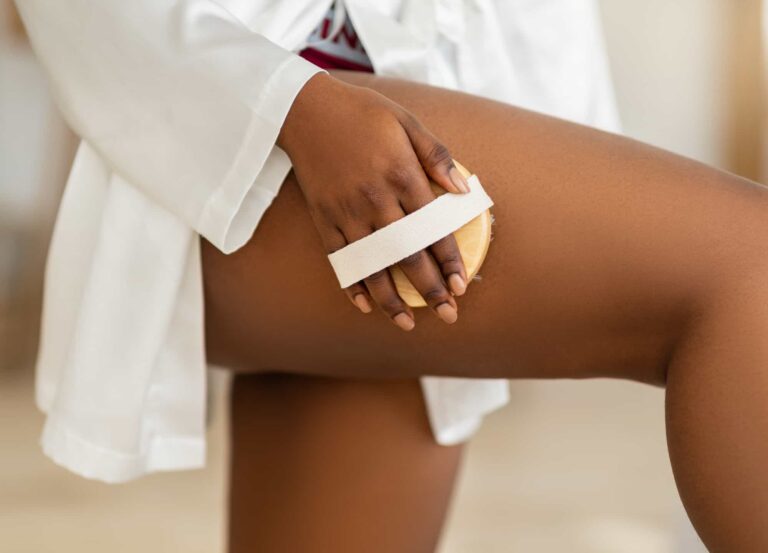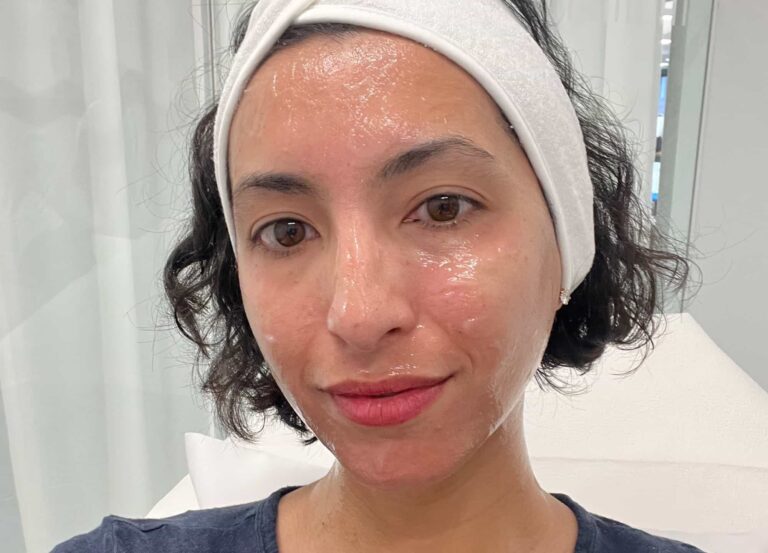Skin cancer is the most common cancer in the United States. According to the Skin Cancer Foundation, one in five Americans will develop skin cancer by the age of 70. It’s a sobering statistic, though one made slightly less scary given that it’s also one of the most treatable cancers. Even melanoma, the deadliest form of skin cancer, has a 99% five-year survival rate—if detected early. That’s why it’s so important to see your dermatologist for annual skin checks as well as regularly self-monitor your skin.
So what if a biopsy shows that you do have skin cancer? For basal cell carcinoma (BCC) and squamous cell carcinoma (SCC), the two most common types of skin cancer, as well as melanoma, surgery is often the only cancer treatment required. (Again, that’s if it is caught early and hasn’t spread to other areas, such as the lymph nodes.) While it’s fairly routine in the world of oncology, there are some important things to know ahead of time. Here, dermatologists share five questions to ask your doctor before any type of skin cancer surgery.
1. Are there any preoperative precautions I should take before skin cancer surgery?
Most skin cancer removal—including Mohs skin cancer surgery, a precise, skin-sparing surgical procedure that’s often used for areas on the head and neck—doesn’t require general anesthesia, just a local anesthetic. Still, it is surgery, and it merits a pre-op discussion. “Ask your doctor if there are any medications or supplements you should stop beforehand,” advises Dr. Jordan Carqueville, a board-certified dermatologist and Mohs surgeon in Chicago. For example, blood thinners have the highest potential for impacting the surgery and subsequent healing, she says. It’s usually best to stay on any prescribed medications, but there are also nonprescription supplements, such as fish oil, vitamin E, and ginkgo, that can cause extra bleeding and, typically, should be stopped two weeks prior, adds Dr. Kathleen Viscusi, a board-certified dermatologist and Mohs surgeon in Atlanta.
2. What kind of downtime will be required after skin cancer removal?
“Many patients don’t associate skin cancer surgery with downtime the same way they would with other surgeries, but it’s important to understand that it can be invasive and require a real recovery period,” says Dr. Viscusi. Exactly what type of physical activities will need to be curtailed depends largely on where the skin cancer is. Wounds heal better when the skin isn’t constantly moving, so if the cancer is on a very mobile area, such as your shoulder, arm, or hand, you’ll definitely want to ask how long you should minimize exercise or even regular movement, notes Dr. Carqueville. It’s important to inquire about wound care as well—how best to keep the wound clean, what kind (if any) products to apply, when to come back for suture removal, and so on.
In related news, it’s a good idea to book your procedure when your calendar is clear and you’re not planning any kind of vacation or special event, suggests Dr. Alicia Zalka, a board-certified dermatologist in Ridgefield, Connecticut. This will give you time to heal and rest (if physical limitations are involved) as well as be available for any follow-up appointments needed, she says. Unless it’s a very aggressive type of skin cancer, most doctors will let you schedule the surgery anytime within three months after the diagnosis, notes Dr. Viscusi.
3. What kind of scar can I expect after skin cancer surgery, and what are my options for mitigating it?
Many people are more worried about the long-term scarring than they are the actual cancer, says Dr. Viscusi. It’s understandable, particularly if the skin cancer is on a cosmetically sensitive area, such as the face. It’s challenging for any doctor to give you an exact sense of scar size ahead of time; even during Mohs micrographic surgery, when the goal is to create as small a wound as possible and minimize the impact on healthy tissue, the scar can end up being larger than expected. But don’t freak out, if your scar looks weird as it’s healing, as there can be some side effects: “Initial bruising and swelling may look scary to you, but it’s completely normal,” says Dr. Viscusi. If you do anticipate that the scar will be prominent or on a part of the body that’s going to bother you, ask your doctor how soon afterward you can start treating it and what the best option will be, adds Dr. Carqueville. “It’s patient- and site-dependent, but there are plenty of options, ranging from lasers to silicone strips to scar creams,” she says. Similarly, if you know that you’re prone to developing keloid scars, make sure to mention this so that your doctor can counsel you on specific ways to minimize the risk in the affected area, she adds. Worst case scenario, your dermatologist or Mohs surgeon can also coordinate with a plastic surgeon if any type of reconstructive surgery is needed after the fact.
4. What are the chances of having another skin cancer develop?
When a skin cancer is treated with surgical excision, the goal of the procedure is to clear it completely and achieve what are known as clear margins, with no remaining cancer cells. There is a risk of skin cancer recurring after treatment—however, some procedures have higher cure rates than others, and this also depends on the characteristics of the skin cancer and the patient, explains Dr. Zalka. That being said, once you do develop skin cancer, you are at high risk of having another one—even if it’s a different type or elsewhere on the body, says Dr. Carqueville. This makes preventive behaviors (daily sunscreen use!) and regular skin checks all the more important for anyone who has had skin cancer surgery.
5. Do I need to come in for more frequent skin checks after the skin cancer surgery?
The answer is most likely yes, though exactly how often that is will, again, depend on the type of skin cancer. “For patients who undergo surgery to remove a melanoma, I typically recommend follow-up skin checks every three months and for non-melanoma skin cancers, every six months, for at least a few years after,” notes Dr. Viscusi. Your doctor will give you more concrete guidelines, but just bear in mind that you probably will be coming back sooner than for your next annual.











